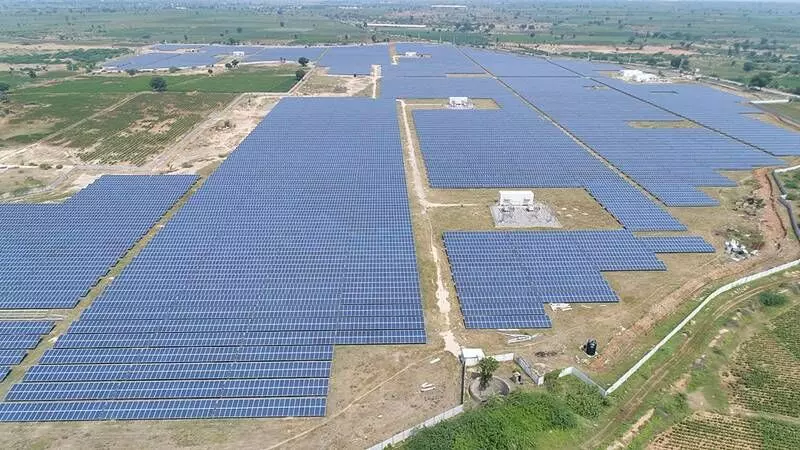'Shifting to renewable energy vital for India to meet its climate goals by 2030'
In order to discuss the key recommendations of the IPCC report, a virtual seminar was organised in which experts mentioned that coal-based power generation will no longer be feasible by 2030 as renewable sources will have to be exploited to meet the country's energy needs. More details here.
 गाँव कनेक्शन 22 April 2022 12:10 PM GMT
गाँव कनेक्शन 22 April 2022 12:10 PM GMT

Experts at the session unanimously agreed that India will need to focus on a battery of solutions and policy changes on both the demand and supply side.
In a bid to discuss about the sustainable sources for country's energy demand in the light of the recently released Intergovernmental Panel of Climate Change (IPCC)'s Working Group III report on Mitigation, a virtual seminar was organised in which experts unanimously agreed that a switch to renewable sources of energy is the need of the hour.
"According to the IPCC, to achieve 1.5°C, the world must reduce annual CO2 emissions by 48% by 2030 and reach net-zero by 2050. This means that governments will need to rapidly introduce policies and measures for emissions to peak by 2025," a press statement on the webinar organised by Climate Trends, a Delhi-based climate communications initiative mentioned on April 20.
Parth Bhatia, Associate Fellow, Centre for Policy Research & Contributing Author on IPCC WGIII report, Chapter 13 - Policies & Institutions, stated in the discussion that according to the IPCC report, almost all electricity should come from low or zero fossil fuel sources to achieve the 1.5 degrees celsius target.
"It means that all coal based power plant assets become a stranded asset risk by 2030 as transitions will accelerate. The goal is to avoid locking in high carbon and wasteful energy systems for the long term as the window to decarbonise is extremely short now. Coal becomes an economic liability and risk in this scenario," Bhatia was quoted.
Experts at the session unanimously agreed that India will need to focus on a battery of solutions and policy changes on both the demand and supply side.
"The incredible advances in wind, solar and other clean technologies, and a rising tide of climate policy are making it possible for countries world over to transition away from fossil fuels," the press statement informed.
"While the current emphasis is on large RE (renewable energy) targets, we are standing at a point where we need to ensure policy support for solutions like green hydrogen, flexible grids, battery storage. If the northern grid has to decarbonise, adjoining states such as Uttar Pradesh, which produces almost 10% of the country's electricity share, need to increase their RE uptake," it added.
The Climate Trends report highlighted that India has been recognised by the IPCC as one the countries, which is gradually decoupling its economic growth from fossil fuel based energy systems.
It however underlined that 75 per cent of the power is still derived from coal but the uneven distribution of renewable energy uptake by states is clearly slowing down this transition.
Manish Ram, a researcher at Finland's Lappeenranta-Lahti University of Technology stated at the virtual seminar that states like Uttar Pradesh have great potential to harness renewable sources of energy but there is a need for state level policy to give the push.
"The developed states are where the penetration and transition are happening. These are the states that are driving the RE push. Many north Indian states are yet to catch up. States like Uttar Pradesh have great potential but there is a need for state level policy to give the push. Delhi has a big role to steer the transition in the northern grid as they have the highest demand and will depend largely on neighbours to get their energy," Ram was quoted.
The Climate Trends press statement noted that goals set by the IPCC cannot be achieved with the current institutional and policy frameworks, unless the central government enhances capacity to make climate policy pervasive across its thinking.
"For eg, the development and adoption of batteries needs to take into account mineral imports, which avoid energy dependency on a single country, while intersects with policies on transport and energy sector decarbonisation, along with waste management. Policy needs to come in a package which meets the multi-sectoral development goals," it added.
Also Read: COP26: PM Modi announces India's commitment to achieve net-zero emission by 2070. Here's what experts have to say
Renewable Energy coal mines Thermal Power solar
More Stories




